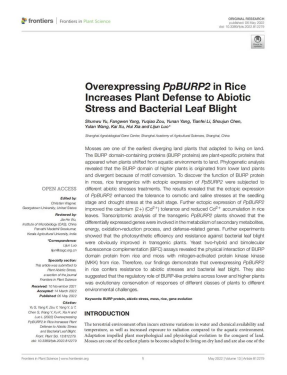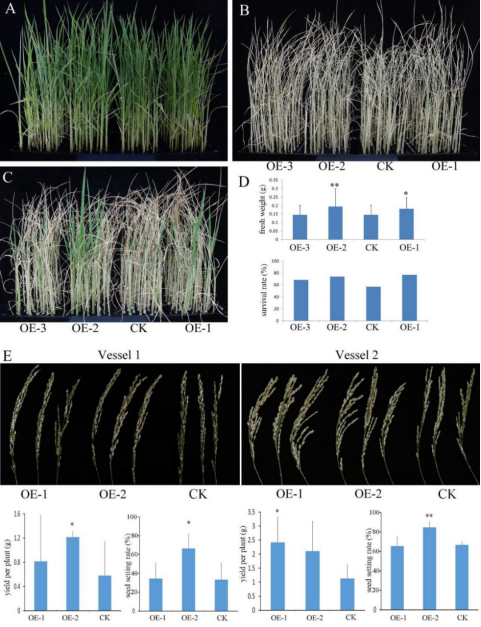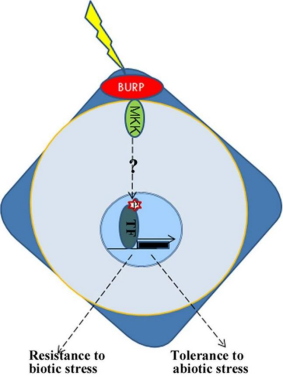Overexpressing PpBURP2 in Rice Increases Plant Defense to Abiotic Stresses and Bacterial Leaf Blight
Scientists from Shanghai Agrobiological Gene Center published a research paper named “Overexpressing PpBURP2 in Rice Increases Plant Defense to Abiotic Stress and Bacterial Leaf Blight” on Frontiers in Plant Science.

Mosses are one of earliest diverging land plants adapted to living on land. The BURP domain-containing proteins (BURP proteins) are plant-specific proteins and appeared when plants shifted from aquatic environments to land. Phylogenetic analysis revealed that BURP domain of higher plants is originated from lower land plants and divergent because of motif conversion. To discover the function of BURP protein in moss, rice transgenics with ectopic expression of PpBURP2 were submitted to different abiotic stress treatments. The results revealed that the ectopic expression of PpBURP2 enhanced the tolerance to osmotic and saline stresses at seedling stage, as well as drought stress at adult stage. Further ectopic expression of PpBURP2 improved the Cd2+ tolerance and reduced Cd2+ accumulation in rice leaves. Transcriptomic analysis of the transgenic PpBURP2 plants showed that the differentially expressed genes were involved in metabolism of secondary metabolites, energy, oxidation-reduction process and defense-related genes. The further experiments showed that the photosynthetic efficiency and resistance against bacterial leaf blight were obviously improved in transgenic plants. Yeast two-hybrid and bimolecular fluorescence complementation (BiFC) assays revealed the physical interaction of BURP domain protein from rice and moss with Mitogen-activated protein kinase kinase (MKK) from rice. Therefore, our findings demonstrated that overexpressing PpBURP2 in rice confers resistance to abiotic stresses and bacterial leaf blight, also suggested that the regulatory role of BURP-like proteins across lower and higher plants was evolutionary conservation of responses of different classes of plants to different environmental challenges.


DOI: https://doi.org/10.3389/fpls.2022.812279
